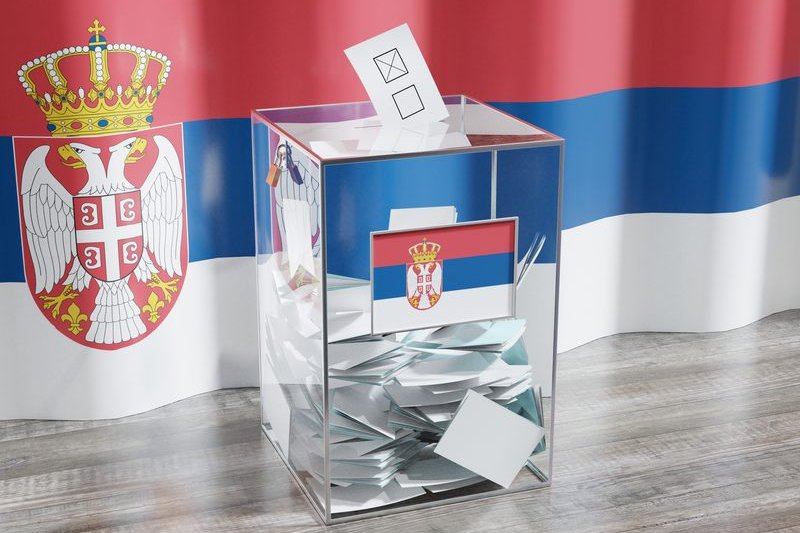Serbian Opposition Seeks Annulment of Elections
"Serbia against violence" opposition coalition claimed that the Serbian Progressive Party (SNS) received 21,000 more votes than their list in the elections in Belgrade.
"Given that more than 40,000 people without legal residence were brought to Belgrade in an organized manner to support the SNS list, which drastically changed the electoral will of the citizens of Belgrade, we demand the annulment of the elections in the city of Belgrade and the repetition of voting for the Municipal Assembly", said the coalition.
From this coalition, they also demanded "purification of the electoral list".
Earlier, SNS rejected the accusations that it influenced the will of the citizens during the December 17 elections.
The president of SNS, Milosh Vucevic, declared that he is "sure" that his list has won in the Serbian capital, Belgrade, and that he believes that Aleksandar Shapic will be the "new or old mayor" of the city.
Serbia held extraordinary parliamentary, local and provincial elections on Sunday.
The participation in the parliamentary elections was 57.65 percent.
According to the Republican Electoral Commission, so far the votes for the parliamentary elections have been counted in almost 35 voting centers.
According to preliminary results, the electoral list "Aleksandar Vucic - Serbia dare not stop" won 50.42 percent of the votes in the parliamentary elections, while the list "Serbia against violence" won 19.25 percent. The third is the "Ivica Dacic - Prime Minister of Serbia" list with 7.19 percent of the votes.
In fourth place is the list "Hope for Serbia" with 4.45 percent of the votes, followed by "We - Voice of the People" with 4.06 percent.
Meanwhile, "The political battle of the Albanians continues - Shaip Kamberi", according to the preliminary results, won 0.79 percent of the votes. This list is expected to win a seat in the Serbian Parliament.
In these elections, the Serb residents of Kosovo traveled to Serbia to vote. This is because the votes have not been allowed to be held in the territory of Kosovo, compared to previous years.
They were able to vote in four cities in the south of Serbia - in Vranje, Kurshumli, Raskë and Tutin.
The government of Kosovo had requested that the state of Serbia make a direct request to hold elections, but the official Belgrade did not do so, as it does not recognize the citizenship of Kosovo.
The last parliamentary elections, which Serbia has organized for the Serbian community in Kosovo, were those of June 21, 2020.
Those elections were held according to an earlier practice, where the mission in Kosovo of the Organization for Security and Cooperation in Europe (OSCE) collected the votes. Those votes were then counted in Raska and Vranje, two border towns of Serbia.
The December 17 elections were the fifth organized in Serbia since 2012, and were held only 18 months after the organization of the last election process.
The election was prompted by growing public anger over this year's mass shootings and the opposition's continued demand for a new election process.
Two mass shootings in May that left 18 people dead, including nine schoolchildren and teenagers, have resulted in weeks of street protests, the Radio Free Europe reported.













